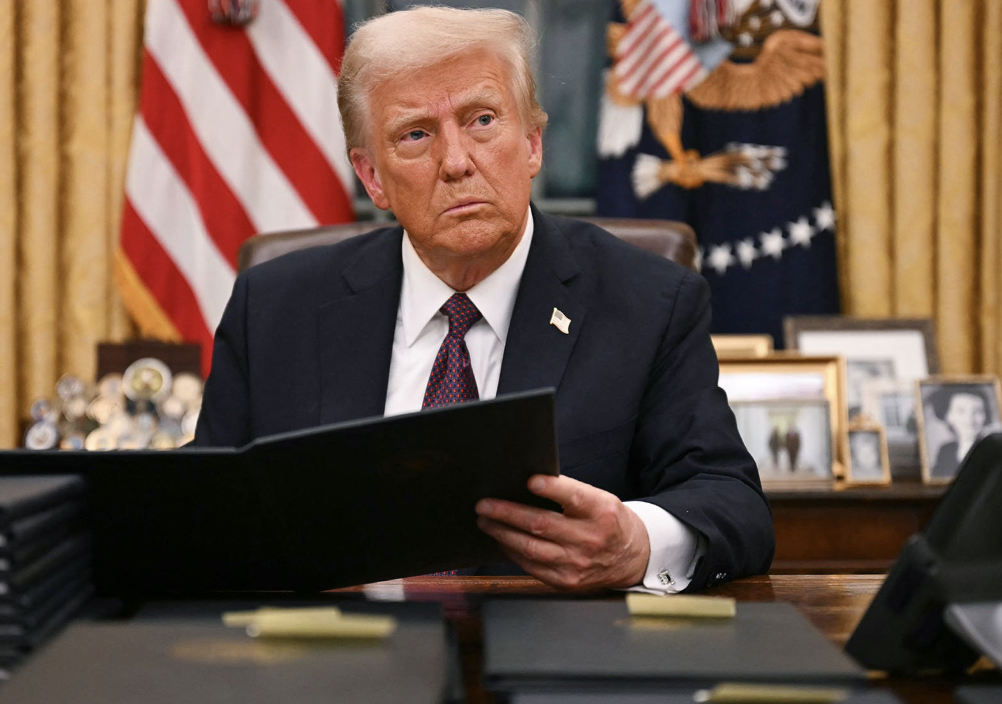Wall Street faced a jolt on Monday as fears of disruption in the booming AI industry surged following the rise of DeepSeek, a Chinese AI company that launched a ChatGPT-like model at a fraction of the cost spent by U.S. tech giants.
DeepSeek’s R1 model, which debuted last week with little fanfare due to the coinciding inauguration of U.S. President Donald Trump, quickly rose to prominence over the weekend. By Monday, the chatbot had become the most downloaded free app on Apple’s U.S. App Store, overtaking OpenAI’s ChatGPT.
The innovation rattled the U.S. tech sector. DeepSeek revealed it developed its model with significantly lower investment, avoiding the heavy reliance on Nvidia chips that have fueled AI development among American companies.
A Challenge to U.S. Tech Dominance
The release of R1 highlights broader concerns about U.S. dominance in the AI race, a key focus of Washington’s technology strategy. Trump reacted swiftly, calling the development a “wake-up call” for Silicon Valley. “Instead of spending billions and billions, you’ll spend less and come up with hopefully the same solution,” Trump said, framing the news as an opportunity for American companies to rethink their strategies.
OpenAI CEO Sam Altman praised DeepSeek’s advancements, calling the R1 model “impressive, particularly given the price point,” and announced plans to accelerate OpenAI’s releases to remain competitive.
Concerns About U.S.-China Competition
DeepSeek’s success has reignited tensions in the U.S.-China technology rivalry. Trump’s AI advisor, David Sacks, argued the development justified the administration’s decision to overturn Biden-era AI safety regulations that would have potentially restricted American companies without affecting Chinese competition.
Marc Andreessen, a prominent tech investor and Trump ally, likened the release of DeepSeek’s R1 to the “Sputnik moment” of AI, referring to the Soviet Union’s 1957 launch of the first satellite that stunned the Western world. “If China is catching up quickly in AI, the economics of AI could be upended,” warned Kathleen Brooks, research director at XTB.
Adding to the controversy, Microsoft CEO Satya Nadella remarked that cheaper AI benefits everyone but urged caution, saying at Davos last week, “We should take the developments out of China very, very seriously.”
Nvidia and Allegations of Secret Chip Access
Nvidia, a key supplier of AI hardware, saw its stock plunge 17 percent on Monday, as much of the AI investment by U.S. firms relies on its chips. However, DeepSeek, restricted from purchasing Nvidia’s top-tier H100 chips due to U.S. export controls, developed its model through alternative means.
Elon Musk and other industry insiders, including ScaleAI CEO Alexandr Wang, speculated that DeepSeek may have accessed banned hardware secretly. However, Hong Kong-based investor Jen Zhu Scott dismissed the accusations, stating, “It sounds like a rich kids team got outplayed by a poor kids team.”
In a statement, Nvidia confirmed that DeepSeek’s technology was “fully export control compliant,” while the MIT Technology Review noted that U.S. restrictions are driving Chinese startups to prioritize innovation, efficiency, and resource-sharing.
Massive Investments Amid Rising Competition
U.S. tech companies are grappling with DeepSeek’s unexpected rise. Microsoft plans to pour $80 billion into AI this year, while Meta recently announced a $60 billion investment. These massive expenditures starkly contrast with DeepSeek’s reportedly leaner development approach.
DeepSeek’s emergence raises pressing questions for Silicon Valley: can costly AI investments remain sustainable when competitors are achieving breakthroughs with fewer resources? As the AI arms race intensifies, the global balance of technological power may be shifting.
